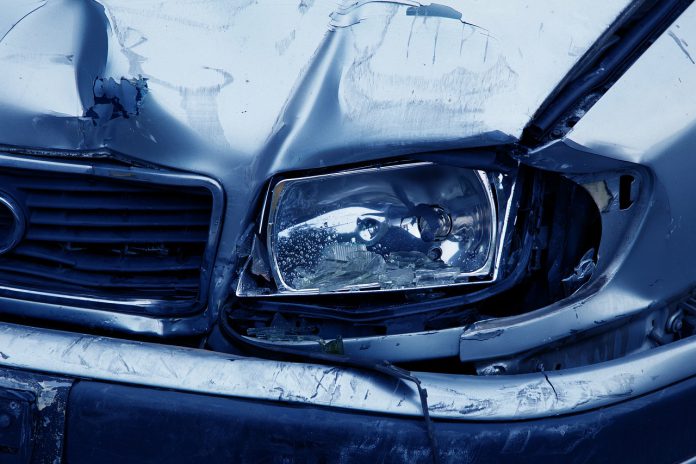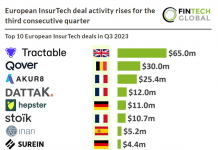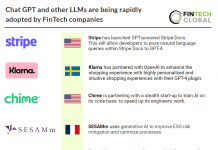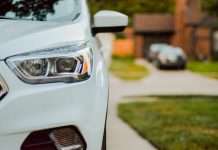Tractable is able to automatically assert auto claims for insurers by leveraging deep machine learning on pictures.
Tractable’s technology gives the old adage that a picture says more than a thousand words a whole new meaning. The InsurTech scaleup’s business is based on its artificial intelligence-powered technology that can automatically assess car or disaster damages, enabling insurers to get a better idea of how costly it would be.
Alexandre Dalyac, Razvan Ranca and Adrien Cohen co-founded the venture and now respectively serve as Tractable’s CEO, CTO, and president. Together, they have grown the company from its London origins to an organization with offices across three continents. Along they way, it has recruited close to 100 staff members and attracted more than $30m in venture capital.
However, they started out with a research projected that applied its tech to tasks that required visual checks. “What AI can do, which humans can’t, is to run thousands of visual photo checks across different events, all in real time,” says Dalyac. “We first looked at construction setups, such as welds. Construction workers could be asked to take photos of their setup and have an AI analyze it in real time, to validate that a weld could be safely performed and that bad setups could be detected and prevented without slowing down workers.”
Having trialled the software, they quickly realized that there was an even larger opportunity for this technology if it was applied to auto collision damage. “With accidents and disasters, cars get damaged most often, and parts are easy to replace – and bodyshops take lots of photos of car damage, which is what you need to train an AI,” Dalyac says.
To sweeten the proposal, the global ecosystem for auto claims is worth roughly $300bn and involves everything from repairers, part sellers and paint sellers to towing companies, auto recyclers and car hire companies. In other words, the potential user space for the software was huge. “It’s the perfect AI task: heavy on image classification, where AI can surpass human performance.”
The technology uses deep learning for computer vision and patented machine learning techniques. “Our AI is trained on many millions of photos from opt-in customers and partners, and the algorithms learn from experience by looking at many different photos and examples,” Dalyac explains.
“Once photos of damage are uploaded, the tool is therefore able to recognize what parts have been damaged and assess how badly they have been affected. It can then recommend decisions, based on its confidence level. The system’s confidence level will depend on part visibility, photo conditions and the extent of damage severity. This means the AI can also interact with the person taking photos to request specific additional photos on the spot.”
It didn’t take long before the company began to attract investors. It raised a $1.9m seed round led by Zetta Venture Partners in 2015. This capital injection was followed in 2017 with a $8m Series A round led by Ignition Partners, the early-stage VC firm. In July 2018, Tractable raised a $25m Series B Insight Partners.
When asked why the Tractable founders choose the VC firm as its partner, Dalyac’s points to the fact that the investor has over $20bn assets under management and that its startup support has led to over 40 IPOs, including recent ones like DocuSign, Pluralsight, and Smartsheet. “We are excited to work with them as they showed us that they really understood the scale of our vision and what we needed to do to grow and become a global business, and we’re really glad to work with them,” Dalyac says.
Tractable has also announced several partnerships with organizations like Thatcham Research, LKQ Corporation and the Automotive Body Parts Association. “Based on requests from insurers, we are partnering with preeminent players in the industry to drive more value to our customers by combining AI appraisal with top data sources,” says Dalyac.
“These partners are some of the best in their field, for example LKQ is a fortune 300 company and one of the largest global providers of alternative vehicle parts. Combining industry leading AI with live parts information and highly accurate repair times can reduce cycle times and help consumers get back on the road more quickly and safely. AI appraisal at FNOL means that a repair can be scheduled, parts can be ordered, and a rental deployed — all much earlier than in the traditional process.
In their ambition to scale, the founders have opened offices in New York and Tokyo with a presence in Madrid and Munich as well. The company has filled these offices with roughly 100 employees, many of which have worked at tech titans like Uber and industry leaders like Goldman Sachs and McKinsey.
Dalyac attributes Tractable’s recruitment success through its entrepreneurial, objective-driven environment. “In practice, that means we give our staff a lot of ownership over their areas, and empower them to make a difference,” he says. “We find that encouraging this type of culture has aided recruitment whether it be engineering, research, business development or operations.”
He continues, “Developing this culture is particularly important given that Tractable comes from the research space – after all, it’s a company born from researchers from Cambridge, Oxford and Imperial. By contributing to the progress of that idea – whether it’s within the research team, or applying the research to real-world situations or helping our customers realize the benefits from it – everyone at the company is making a powerful contribution.”
Tractable’s research team includes top machine learning researchers, but is also an eclectic mix of physicists, neuroscientists and research hackers, with various levels of experience. Dalyac says that they are all “curious about how theory meets the world,” which is the thing that bings them together.
“This matters because this team works in the real world, with mechanics and car bodyshops, every day – so they need to solve the problems those people encounter, as well as new ones created by using an AI,” he adds.
“We also have real expertise in the auto field, as we’ve made a conscious decision to hire motor engineers and auto experts to make sure that our solution isn’t just something that comes from the lab – it needs to work for the people using it on the ground, and help them do their jobs better.”
Having supercharged the team size, Tractable is now revving up to expand its reach along further avenues. “So far, we have mostly focused on auto claims, but with the rising frequency of natural disasters we recognized that we could apply our technology to help restore livelihoods quicker there as well,” Dalyac says. “Part of that is by expanding our reach in the global auto repair ecosystem – Europe, the Americas, and Asia – bringing our AI to insurers, repairers and the rest of the supply chain. Further, we’re seeing demand across the vehicle life cycle: maintenance, lease returns, used car sales.
“We also see demand for visual appraisal of property damage from natural disasters, the mission aspect of which we’re motivated by. Our technology can help in this sector too.”
Looking to the future, Dalyac says that Tractable is looking to go global. “We are now working with insurers across the world and are opening offices to cope with demand, recently growing a team in Japan to ten in just three months,” he concludes. “We’re focused on bringing new insurers on board from across the world and making a difference for them, while also expanding how our solution can be applied so we can help make improvements across the auto claims journey for insurers, bodyshops and end-users.”
Copyright © 2019 FinTech Global











